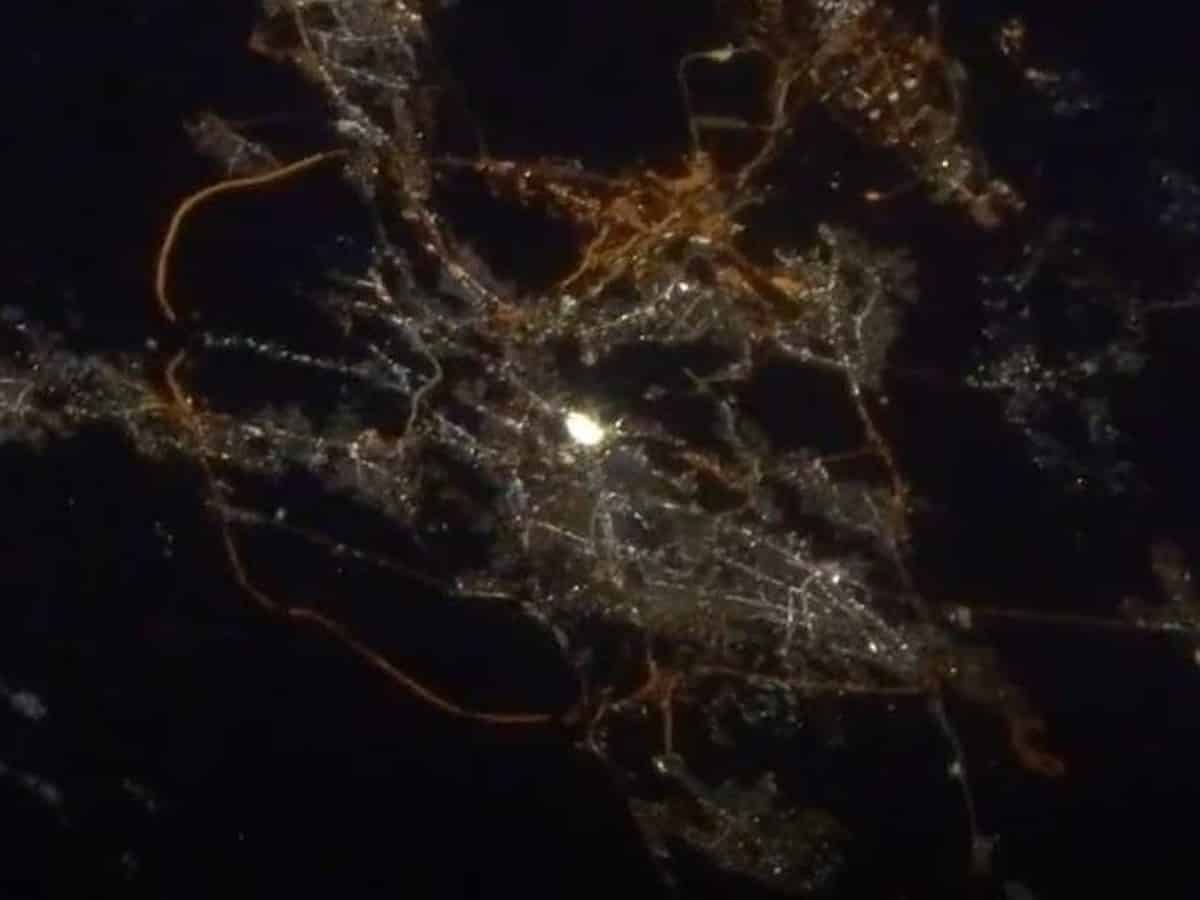
Abu Dhabi: United Arab Emirates (UAE) astronaut Sultan Al Neyadi, who is currently on a six-month space mission to the International Space Station (ISS) shared an incredible view of Saudi Arabia’s Makkah and Madinah.
Al Neyadi tweeted a video of the Kingdom’s holy sites on the 27th night of Ramzan, calling the footage “a gift for Salman’s children on these blessed nights”.
“A dedication to the country of the Two Holy Mosques, the landing site of revelation and the land of the message, the Kingdom of Saudi Arabia,” he added.
The video shows Makkah and Madinah completely lit up, and stunning images of the Grand Mosque.
Al Neyadi pans the camera over Madinah and says, “This is Madinah, the city to which Prophet Muhammad (PBUH) immigrated with his beloved people.”
Then he moves the camera to show Jeddah.
“This is the city of Jeddah, often referred to as the Bride of the Red Sea,” Al Neyadi says.
Then move the camera to show Makkah and says, “The holy city of Makkah, where the message of Islam was rooted with the Prophet, may God bless him and grant him peace.”
Al Neyadi then points to the light from the Grand Mosque in the city centre, which can be seen shining brightly in the video, even from space.
Watch the video below
Al Neyadi’s special gift came as crowds of worshippers performed the Isha and Taraweeh prayers on Monday at the Grand Mosque to glorify the 27th night of Ramzan, while also celebrating the last ten days of Ramzan, which many Muslims consider the most blessed.
Emirati astronaut Sultan Al Neyadi made history on March 2 by becoming the first Arab to join a long-term space mission that will last six months as part of SpaceX’s crew.
The mission is a historic landmark for the United Arab Emirates (UAE).
The SpaceX Dragon spacecraft, named Endeavor, aboard a Falcon 9 rocket, carried the Emirati astronaut along with two NASA astronauts, Mission Commander Stephen Bowen, Pilot Warren Hoburg, and Roscosmos Cosmonaut Andrey Fedyaev.
Sultan Al Neyadi will be the first Arab to walk in space when he exits the International Space Station on April 28.
